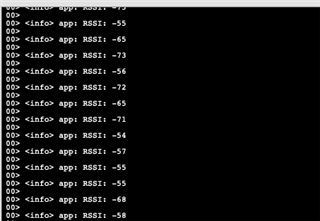Hi,
I have 3 estimote beacons which I want to scan using nrF52833 and display scan response data on Segger RTT viewer and I don't want to establish the connection between them.
I have referred ble_app_beacon example but it seems that it does not scan for the beacon device instead nrf52 dev kit acts as a transmitter.
Lastly I want to make beacons as a transmitter and nrF52 kit as receiver (scanner).
How can I do it ? is there any specific example for this?



